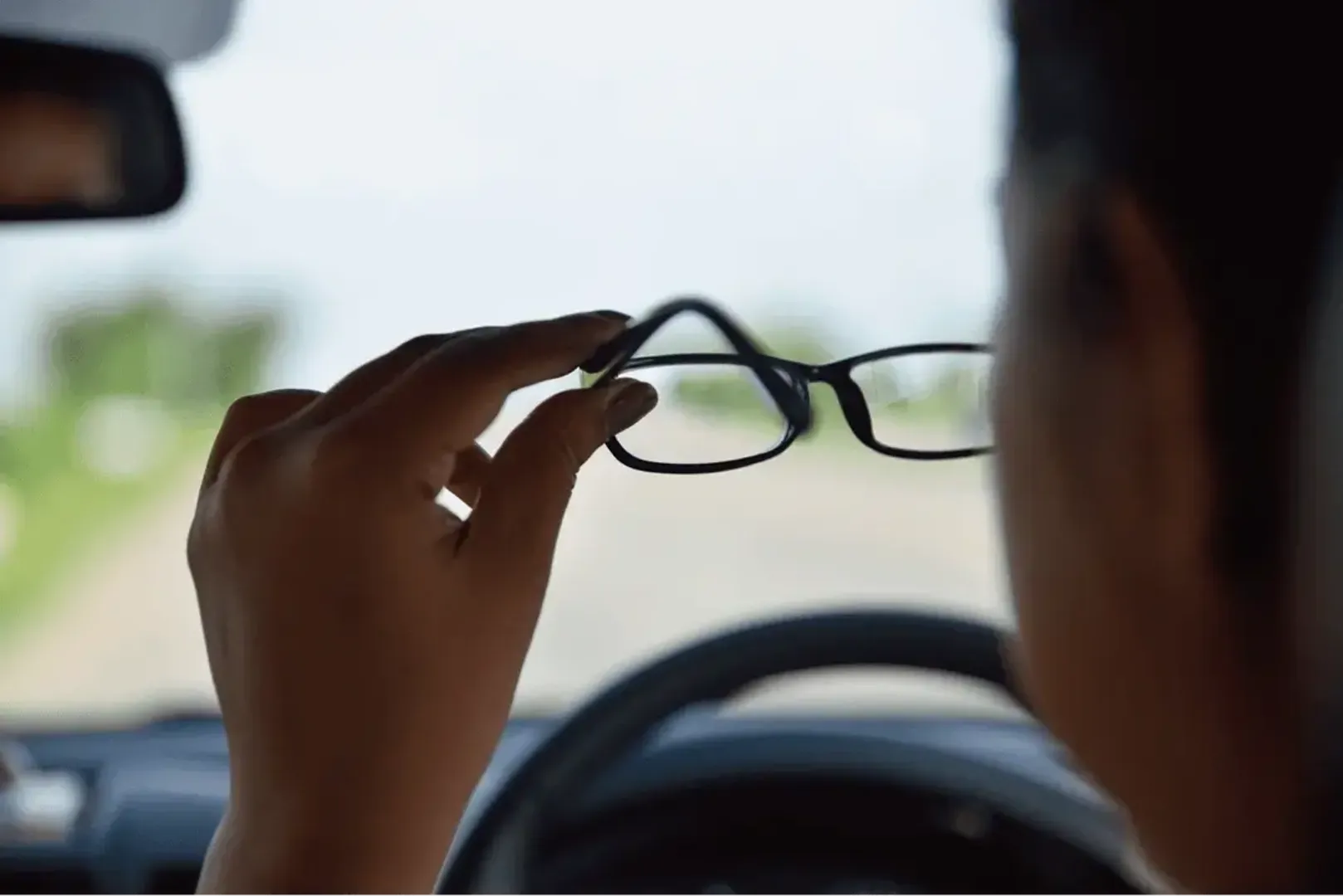
Should employers look after their drivers’ eyesight?
Whether your team are driving HGVs to jobs or their own company cars to visit clients, their eyesight needs to be good enough to keep them and other road users safe. Although the vision standards for driving differ depending on the type of vehicle being used, as an employer, you need to be aware of these rules to help keep your team safe and seeing clearly. This guide will give you helpful advice on any action you need to take.
Do employers have any responsibility for their drivers’ eye health?
Under the Health and Safety at Work Act 1974, employers must take all ‘reasonable’ steps to protect their employees while at work, including if they’re driving as part of their duties. With more than a quarter of road incidents involving someone who is driving for work, the risk of this type of accident is quite high. This means employers need to put good levels of control in place to maintain their team’s eye health.
Although this duty of care extends to any full or part-time colleagues, it doesn’t cover any contractors or self-employed workers. Though you do have a responsibility to your customers and business to check that any partners you work with have appropriate health and safety controls in place. It’s also important to note that an employer’s duty of care applies whether employees use a company vehicle or their own.
Why is protecting drivers’ eye health important?
From 2001, the minimum standard of eyesight for driving a car has been the ability to read a number plate from a distance of 20 metres, with the help of glasses or contact lenses if needed. Yet, many drivers still fail to meet this standard, whether through not wearing their glasses or not having regular eye examinations. Putting policies and support in place to maintain your drivers’ eyesight is key to:
- Protecting employees: individuals that drive without the glasses or contact lenses they need are four times more likely to have an accident. Those who don’t realise they have problems with their eyesight are equally as likely to harm themselves or others. By supporting your team’s eye health, you can fulfil your duty of care and keep them safe on the road.
- Avoiding costly accidents: car drivers that crash as a result of problems with their vision can face prison or a £1,000 fine. The costs to businesses can be even higher, especially if an employee is injured (or worse) and it's later deemed that adequate controls or support were not put in place for them. So to protect your business insurance and reputation, it's key that you help employees look after their eyesight.
- Keeping the team on the road: 134 drivers a week have their driving license taken away because they can’t pass the standard eye test. So having an option for eye examinations open to your drivers is important to keep them on the road. Eye checks can also help identify other harmful conditions, such as high blood pressure or diabetes, so making tests mandatory can support your team’s wider health too.
In short, as well as fulfilling your duty of care to your employees, having an eye health policy in place can support your team’s wellbeing and make accidents within your fleet less likely.
How can employers protect their drivers’ eye health
There are two main ways employers can protect their drivers’ eye health: by offering an eye care plan or policy and communicating the symptoms and risks of poor sight effectively with their team.
You might think it's an expensive outlet to offer employees eyecare plans, and you wouldn’t be alone. Only 32% of UK businesses report offering workplace eye care for all their employees. However, there are lots of options available to businesses, whatever their budget or needs. Most opticians recommend that individuals get their eyes tested every two years, so paying for this examination through eVouchers or online codes is the basic level of care you can provide and will fulfil your responsibilities as an employer.
Another way to give inexpensive support to your drivers is to educate them about their eye health. Telling your team about any eye care policies and giving them information about the signs of bad eyesight will put your team in the best position to look after their eye health. By helping your employees spot any problems with their eyes and showing how seriously you take their health, you can make them feel and stay safer on the road.


